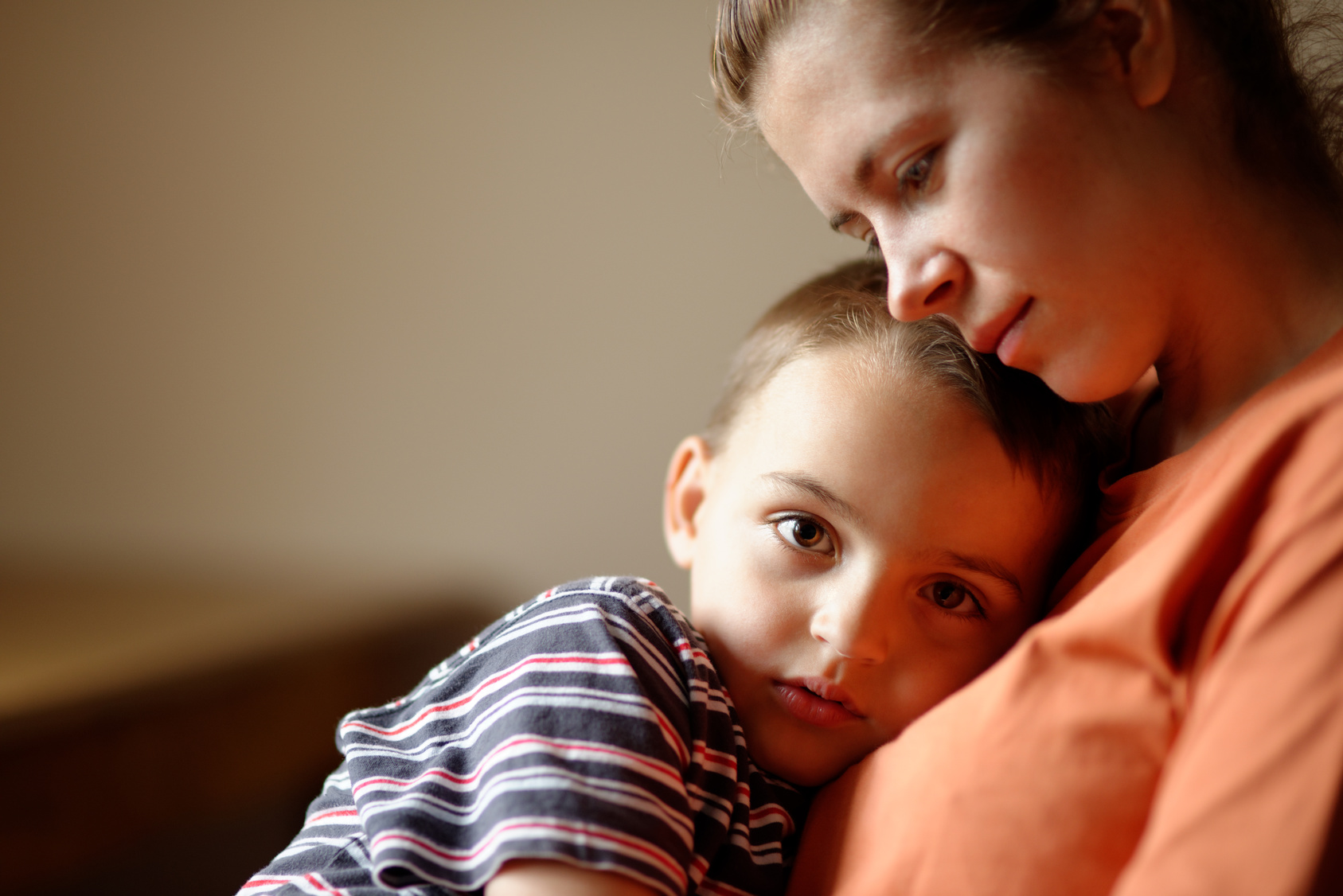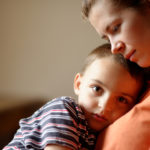Many studies have documented the finding that exposure to maternal psychiatric illness early on in the child’s life may adversely affect the child’s cognitive, emotional and behavioral development. These early studies focused on the impact of postpartum depression. (The effects of PPD on the child are reviewed in Goodman et al, 2011.) However, we know far less about the impact of postpartum anxiety on the child.
The extent to which maternal anxiety disorders affect child developmental outcomes is another important question, given that anxiety disorders are relatively common among mothers in the postpartum period and often co-occur with postpartum depression. The data we do have suggest that maternal anxiety, either alone or in combination with depression, may be associated with difficulties in mother–child interactions and may negatively affect child outcomes (Nicol-Harper, Harvey, & Stein, 2007; Murray, Cooper, Creswell, Schofield, & Sack, 2007; Cooper, Gallop, Willetts, & Creswell 2008). We have limited data regarding the long-term impact of maternal anxiety; however, one study observed worse outcomes in children who were exposed to more persistent maternal anxiety (Spence et al, 2002).
In a recent study researchers examined the impact of postpartum major depressive disorder (MDD) and generalized anxiety disorder (GAD) on children’s emotional and behavioral functioning at 24 months (Prenoveau, Craske, West, Giannakakis, et al., 2017). As part of the larger Oxford Parent Project, postpartum women were screened at 9 weeks postpartum and were identified as having MDD, GAD, MDD and GAD, or no disorder. The severity of maternal illness was assessed using questionnaires and structured interviews at 3, 6, 10, 14, and 24 months postpartum. At 24 months, child emotional negativity and behavior were assessed using questionnaires and by direct observation.
The study observed that persistent maternal anxiety and depressive symptoms during the first two years of the child’s life was related to maternal reports of worse behavior and emotional negativity in their 24-month-old children. However, when persistent maternal anxiety and depressive symptom severity were assessed as possible predictors, persistent anxiety did not independently increase risk for adverse child outcomes (as reported by the mother) above and beyond persistent maternal depression. In addition, when the children were directly observed, the researchers observed that persistent maternal depression, but not anxiety, was associated with negative emotional tone and negative emotional reactivity during a stressful task (Prenoveau et al., 2017).
These findings are consistent with previous studies suggesting that persistent maternal depression, and possibly anxiety, contribute to children’s behavior problems and emotional negativity in very young children. Given that previous research indicates that higher levels of negative emotional reactivity as early as 14 to 21 months is related to worse emotional development later in childhood (Kagan et al, 1998), these findings highlight the importance of early intervention with the goal of preventing the negative effects of postpartum psychiatric illness on children.
Ruta Nonacs, MD PhD
Cooper PJ, Gallop C, Willetts L, Creswell C. Treatment response in child anxiety is differentially related to the form of maternal anxiety disorder. Behavioural and Cognitive Psychotherapy. 2008;36:41–48. doi: 10.1017/S1352465807003943.
Goodman SH, Rouse MH, Connell AM, Broth MR, et al. Maternal depression and child psychopathology: A meta-analytic review. Clinical Child and Family Psychology Review 2011; 14, 1–27.
Kagan, J. 1998. Biology and the child. In N. Eisenberr (Ed.), W. Damon (Series Ed.), Handbook of child psychology: Vol. 3. Social, emotional, and personality development (5th ed) 177-235. New York: Wiley & Sons.
Murray L, Cooper P, Creswell C, Schofield E, Sack C. The effects of maternal social phobia on mother-infant interactions and infant social responsiveness. J Child Psychol Psychiatry. 2007 Jan;48(1):45-52.
Nicol-Harper R, Harvey AG, Stein A. Interactions between mothers and infants: impact of maternal anxiety. Infant Behav Dev. 2007 Feb;30(1):161-7. Epub 2006 Sep 12.
Prenoveau JM, Craske MG, West V, Giannakakis A, et al. Maternal postnatal depression and anxiety and their association with child emotional negativity and behavior problems at two years. Dev Psychol. 2017 Jan;53(1):50-62. Free Article
Spence, Najman, Bor, O’Callaghan, Williams. Maternal Anxiety and Depression, Poverty and Marital Relationship Factors During Early Childhood as Predictors of Anxiety and Depressive Symptoms in Adolescence. Journal of Child Psychology and Psychiatry. 2002; 43 (4): 457-469.







Leave A Comment